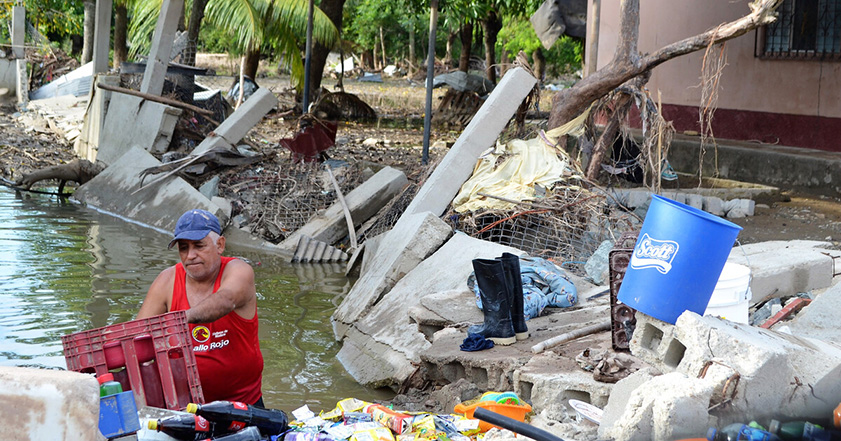Scientists are saying it is “the bleakest warning yet”. The latest IPCC report is out, carrying an even more alarming tone; we need to act now if we want to deliver a living planet to our children.
Those of us who have watched Adam McKay’s Don’t look up can sadly spot the similarities between the apocalyptic black comedy film and what is happening in real life. Time and time again, scientists warned that climate breakdown is accelerating rapidly. And yet, the world refuses to believe it, let alone do something about it.
In fact, the latest warning has been described as “an atlas of human suffering”. IPCC’s latest climate report looks at the impacts of climate change, and adaptation to global warming. Here are the main 5 findings you should know about from the latest IPCC report.
1. Climate change is a threat to human well-being and planetary health. Around 3.3 – 3.6 billion people are living in situations where they are highly vulnerable to global warming.
2. Human-induced climate change, including more frequent and intense extreme events, has caused widespread adverse impacts to people and nature. This includes death, physical and mental health impacts, and damage to livelihoods, infrastructure and habitats.
3. Some of these impacts are irreversible. Humans and nature are pushed beyond their ability to adapt, with glaciers melting, permafrost thawing and species going extinct.
4. There will be “unavoidable increases” in many climate hazards in the next two decades. Keeping temperature rises to close to 1.5C above pre-industrial levels will substantially reduce the losses and damages caused by climate change compared to higher temperatures, but does not eliminate all dangers.
5. The report warns that any further delay in concerted global action to cut greenhouse gas emissions and adapt to the changes will miss a brief and rapidly closing window of opportunity to secure a liveable and sustainable future for all.
The report also highlights how climate extremes are driving migration and displacement more and more in all regions of the world – with small island states affected most.
As extreme weather events are getting worse, our work is needed more than ever. Please support our work and help us reach communities who are bearing the brunt of climate change.
What is the IPCC and why does it matter?
IPCC stands for Intergovernmental Panel on Climate Change. It is the United Nations body for assessing the science related to climate change.
The IPCC exists to provide policymakers with regular scientific assessments on climate change, its impacts and future risks, and options for adaptation and mitigation.
It was established in 1988, publishing its first report in 1990. Since then, scientists have produced a report roughly every seven years. The latest one is the sixth assessment report – the bleakest one yet.

